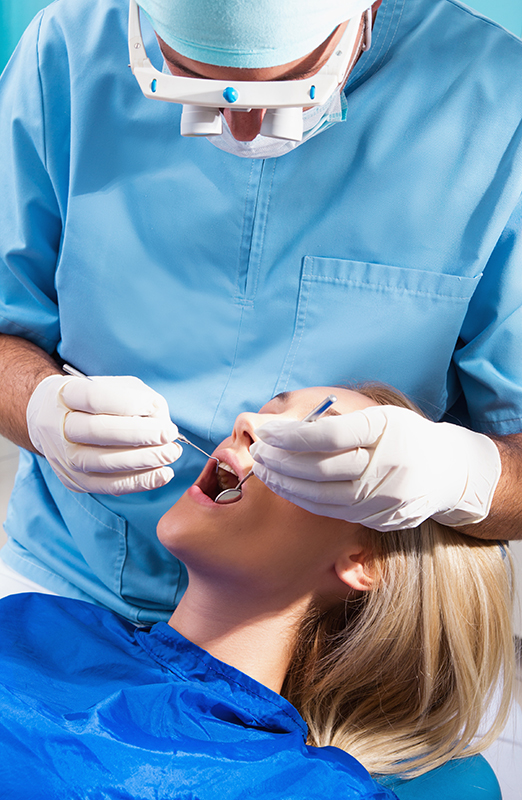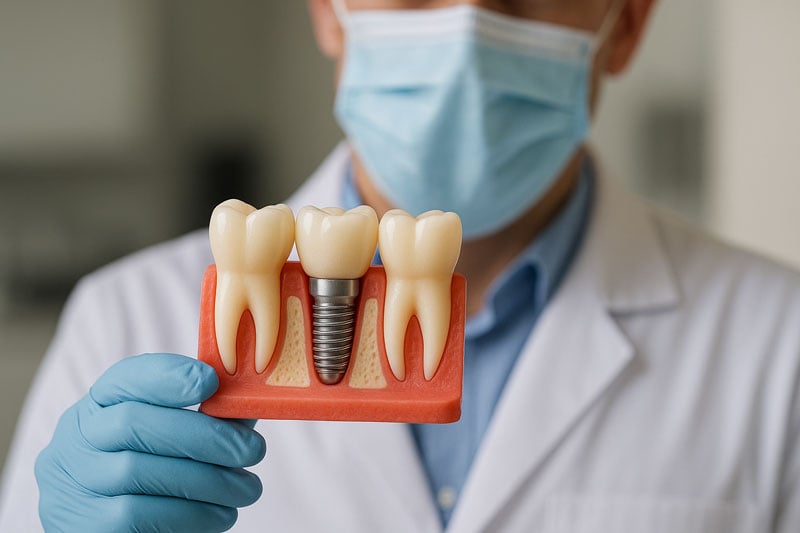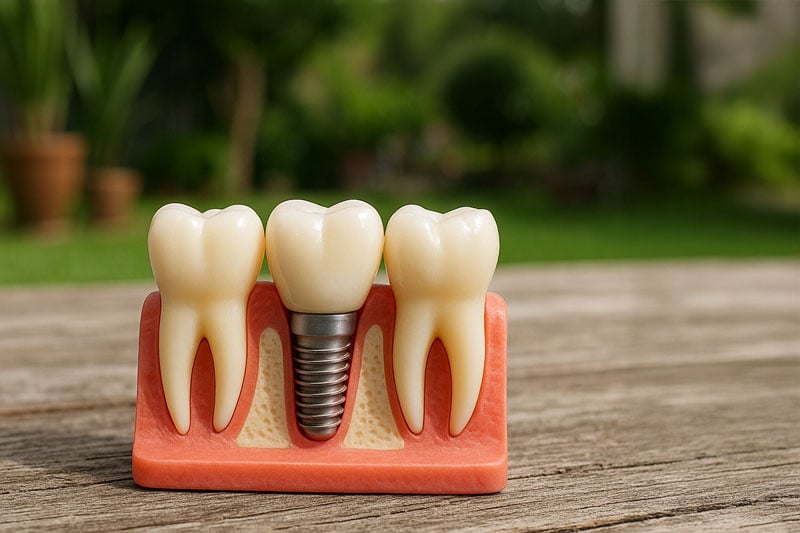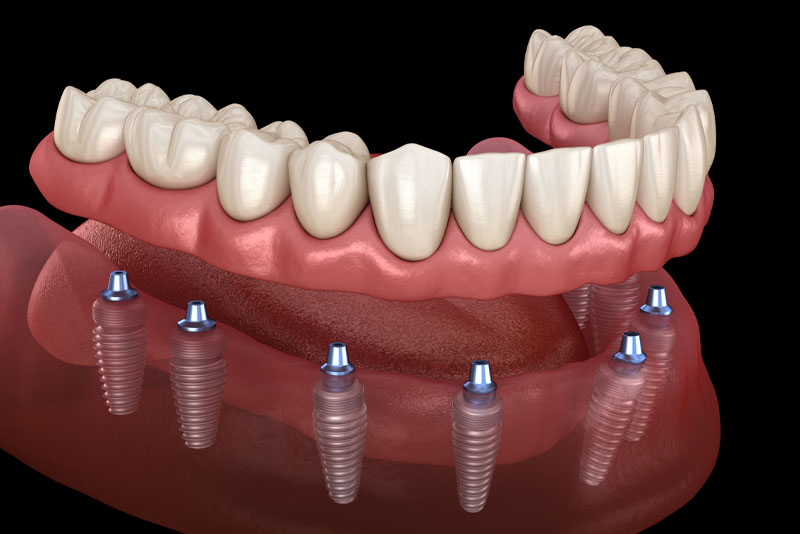Dental Blog - Las Vegas & Henderson, NV
Dental Blog

Simple And Surgical Tooth Extraction

What Is Tooth Extraction?
When a tooth is removed or pulled, it’s called an extraction. Your oral surgeon may recommend tooth extraction if your tooth is decayed or eroded to the point where a filling or a crown would not solve the entire issue.
When a tooth is extracted, the entire tooth is removed from its bone socket. If a tooth proves difficult to extract, it may need to be removed in pieces. One of the most common surgical tooth extraction procedures is wisdom teeth removal, but any tooth that is difficult to remove through a simple tooth extraction should be surgically removed.
When Is Simple Tooth Extraction Necessary?
If a tooth can be easily seen in the mouth, it can be removed through a simple tooth extraction. Most simple extractions can be performed using local anesthetic, or small injections around the affected tooth.
When Is Surgical Tooth Extraction Necessary?
If a tooth is broken off or has not yet grown in, your oral surgeon may recommend surgical tooth extraction. Surgical tooth extractions may require both local anesthetic and general anesthesia or intravenous sedation. Your oral surgeon will go over your options with you before the procedure.
Schedule Your Tooth Extraction Today
Your natural teeth are strong and durable, so naturally oral surgeons would like you to keep them for as long as possible. However, situations can arise where it’s recommended to remove teeth through surgical or simple tooth extraction. Common issues that often require tooth extraction include excessive decay or enamel erosion, trauma, disease, or tooth crowding.
At Nevada Oral & Facial Surgery, our first priority is making sure that, if you need surgical tooth extraction, you are comfortable, informed, and prepared. Read more about surgical tooth extraction below.
What To Expect During A Tooth Extraction Procedure
In simple tooth extraction procedures, an oral surgeon can generally remove the affected tooth with forceps after administering necessary anesthetic.
Surgical tooth extraction procedures are a little more complex. After you are placed under anesthesia or other sedation methods, your oral surgeon will make a small incision in the gum to get to the affected tooth. They will then remove the entire tooth at once, or piece by piece. Occasionally, your oral surgeon may need to remove affected bones around the tooth. After the tooth is extracted, your oral surgeon will clean and stitch up the affected area.
For one tooth, the entire sedation and extraction process should take about 15 to 30 minutes.
Read more about tooth extraction.
Sedation Options
When going in for a surgical tooth extraction, you have a few options when it comes to sedation. Your choice will often depend on your previous experience with oral procedures, as well as any allergies or conflicting medications. Your oral surgeon will go over your sedation options with you before the procedure as well.
| • | Inhaled sedation: After the procedure is performed, you will most likely be able to drive home with this sedation option. |
| • | Oral sedation: This oral anesthesia can be administered in minimal to moderate doses. |
| • | IV sedation: This anesthesia option is administered through the veins, but you can easily be awoken from sedation. |
| • | Deep sedation: This requires general anesthesia, which can take some time to wear off after your procedure. |
In addition to the sedation option you choose, your oral surgeon will also apply local anesthetic to the area around your affected tooth to minimize any possibility of pain.
How Can I Be Prepared For A Surgical Tooth Extraction?
Before your simple or surgical tooth extraction procedure, your oral surgeon will go over the results of your x-rays with you. They will make sure that you understand the procedure, as well as any possible risks.
Tooth Extraction Aftercare
After your tooth extraction procedure is over, your oral surgeon will explain their recommended aftercare instructions. Remember – tooth extraction is surgery, so you should expect to experience some form of discomfort after both simple and surgical extractions.
Most pain can be relieved with over-the-counter pain medications like Advil, Tylenol, or Motrin. Your oral surgeon will detail specific dosage recommendations. They may also prescribe additional pain medication, depending on the severity of the surgical tooth extraction.
Because oral cuts tend to bleed more than skin cuts, your oral surgeon may recommend that you bite down on a piece of gauze until the bleeding subsides. If you notice that your face is slightly swollen on the side where your tooth was extracted, you can apply an ice pack to reduce the swelling.
Our award-winning, board-certified team of oral surgeons will make sure that you are comfortable with your tooth extraction procedure – from your initial consultation to your aftercare. Your oral surgeon will work with you to perform your tooth extraction procedure as quickly and painlessly as possible. Contact us to schedule your tooth extraction consultation today!
[/vc_column_text][/vc_column][vc_column width=”1/3″][vc_single_image image=”365″ img_size=”full” alignment=”center” el_class=”img_col”][/vc_column][/vc_row]




